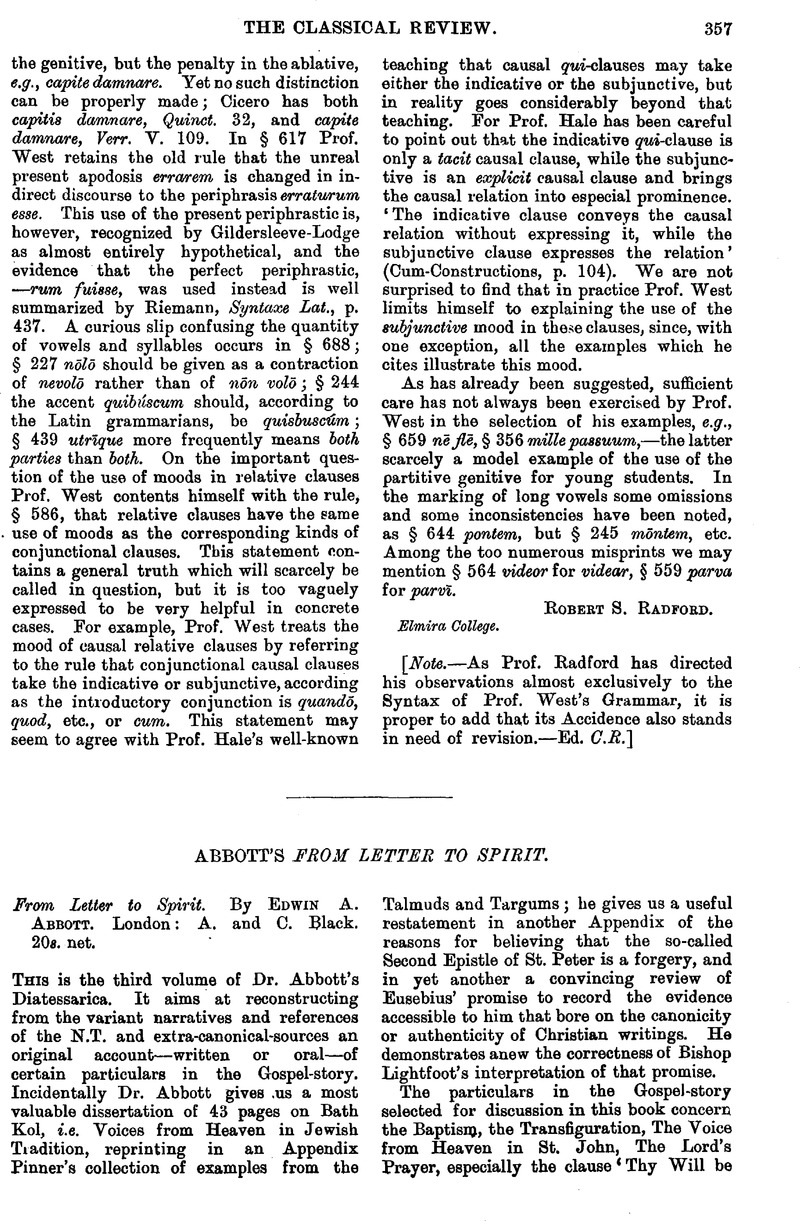No CrossRef data available.
Article contents
Abbott's from Letter to Spirit - From Letter to Spirit. By Edwin A. Abbott. London: A. and C. Black. 20s. net.
Review products
Published online by Cambridge University Press: 27 October 2009
Abstract

- Type
- Reviews
- Information
- Copyright
- Copyright © The Classical Association 1904
References
page 358 note 1 e.g. § 639.
page 358 note 2 It may be asked whether the original would not be Aramaic, not Hebrew; and whether, except S. Paul, any one was likely to Targumize in New Hebrew or even perhaps understand it. If not, are not all the solutions from New Hebrew out of place?
page 359 note 1 §§ 669a and 675.
page 359 note 2 In Mk. xiv. 36, e.g., Dr. Abbott seeks to demonstrate that the only right translation must be ‘it is no question what I will, but what Thou wilt,’ arguing from late Greek authors. But all these authors exhibit some tinge of Attic diction, style, and construction: S. Mark surely does not. Dr. Moulton's examples therefore in the April number of this Review (p. 154) justify the A.V. This example may show how much distrust must be felt of commentaries built on a knowledge of classical Greek only, or united even to a knowledge of the LXX.
page 360 note 1 Thus I should doubt if he knew (§ 945) the nice Greek use of κθημαι = ‘remain doing nothing,’ and am not fully satisfied with the argument on xiv. 36 παρνεγκε.
page 360 note 2 The π- = κατ may reassure Dr. Abbott in regard to the harmony of Mk. i. 10 and its parallels.
page 360 note 3 Perhaps such a vulgar use misunderstood gave rise to S. Luke ix. 62 if Dr. Abbott is right in making this resemble Acts ix. 5.
page 360 note 4 Dr. Abbott derives from Sabach(thanei) variously understood no less than nine distinct Gospel statements.


